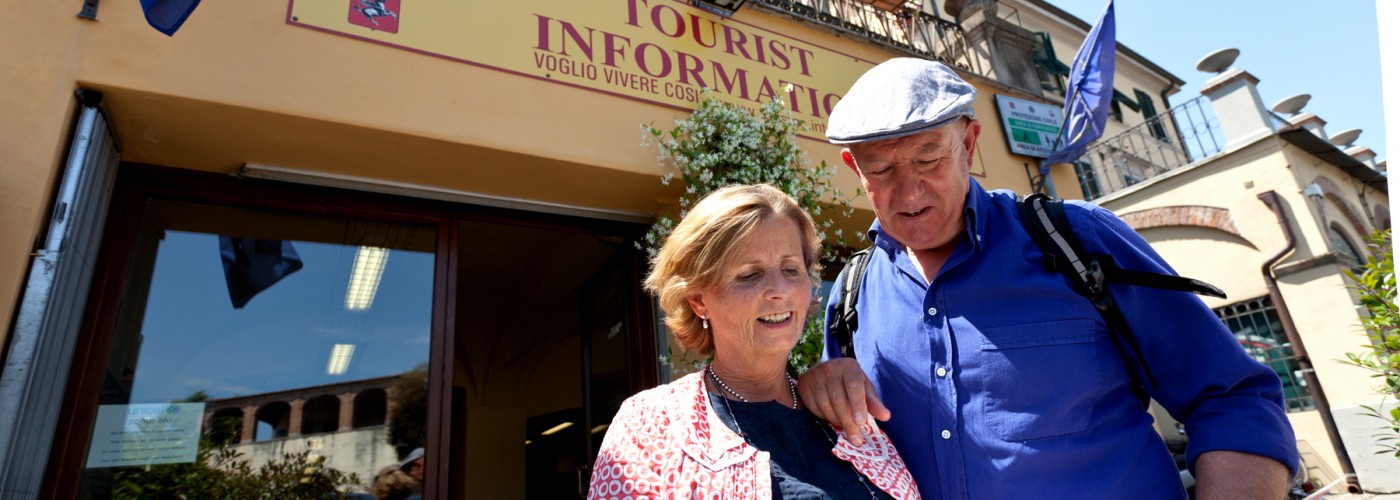Whether tackling big cities or quaint villages in Europe, you don’t want to feel like a stranger in a strange land (even though that’s exactly what you are). Getting oriented is especially important in big cities—which, for many travelers, are the most intimidating parts of European trips.
First, have a good guidebook—whether print or digital—for wherever you’re traveling. There are guidebooks for everyone: shoppers, vegetarians, seniors, campers … even opera buffs. Invest in a guidebook that fits your style.
Smart travelers use a savvy mix of guidebooks and the Internet. Check the official tourist-office website before you go (avoid unofficial tourist websites trying to sell you something). Look for digital postcards from the place you’ll be visiting or search YouTube for clips about local sights and experiences. Web-based reviews of sights, hotels, and restaurants are popular and powerful. But, while helpful, they can be misleading—so be careful.
While guidebooks come with basic maps of big cities, these are generally small and intended only to give you an overview. A detailed, foldout map can save you endless time and frustration; I make a point of picking one up immediately upon arrival.
If you think print is passe, there are smartphone apps that let you download maps, and once that’s done, the maps are accessible without an Internet connection. Though many smartphones have GPS built in, it could be expensive, since it takes an Internet connection to pinpoint your location, leading to exorbitant data-roaming charges.
Study your map to understand the city’s layout. Relate the location of landmarks—your hotel, major sights, the river, main streets, the train station—to each other. Use any viewpoint, such as a church spire, tower, or hilltop, to understand the lay of the land and see where you’re going next.
No matter how well I know a town, my first stop when I arrive is usually the tourist information office. You’ll find these on main squares, in city halls, at train stations, or sometimes at airports or cruise ports. A normally busy but friendly and multilingual staff gives out sightseeing information, reserves hotel rooms, sells concert or theater tickets, and answers questions.
But be aware that, while handy, their purpose is to help you spend money in their town. Many are privatized. Funded by hotels and big tour companies, they can be more interested in selling tickets and services than just giving information.
Once I nearly got into an argument at the Bath tourist office in England. I was in a sour mood at how expensive things had become in Bath, the most delightful (and probably richest) little city in England. Tourism is its bread and butter, yet even the tourist office—recently privatized—did its best to take advantage of visitors. When I walked in, I realized that more square footage was devoted to their retail shop than to tourist information.
My guidebook listed the office’s free phone number—the one dedicated to booking rooms. As I updated the text, they asked me to change that phone number to their toll number. (In each European country, you need to watch out for costly toll prefixes in phone numbers.) Now I list both numbers, but it bothers me that the Bath tourist office charges a dollar a minute to ask them for advice on how to spend money in their overpriced town.
In many cities, you’ll see hop-on, hop-off tourist buses connecting the major sights. Riding one when you arrive gives you a feel for the city’s layout. Or try a public bus ride: Paris’ bus #69 gives you a connect-the-dots tour of central Paris from the Eiffel Tower to Pere Lachaise Cemetery.
If you find yourself in a town with no guidebook coverage or tourist office, glance through a postcard rack to get a quick overview of the town’s most famous sights. Even the most mundane town will feature whatever’s worth seeing on its postcards.
Many disoriented tourists are too afraid or timid to ask questions. If you are too proud to ask, your trip will be dignified … but dull. Firsthand advice is available from hotel information desks, B&B hosts, hostel employees, and other travelers. Glean information from the couple seated next to you at breakfast, chat with the waiter who serves you lunch, or ask a shop owner for tips.
While smart travelers get oriented quickly, there’s also something to be said about getting lost. Venice can be mobbed with tourists. But savvy travelers leave the center and explore, walking to the far reaches of the island even if they’re not sure where they’re going.
(Photo: Dominic Bonuccelli)
Rick Steves (www.ricksteves.com) writes European travel guidebooks and hosts travel shows on public television and public radio. Email him at rick@ricksteves.com and follow his blog on Facebook.
You Might Also Like:
We hand-pick everything we recommend and select items through testing and reviews. Some products are sent to us free of charge with no incentive to offer a favorable review. We offer our unbiased opinions and do not accept compensation to review products. All items are in stock and prices are accurate at the time of publication. If you buy something through our links, we may earn a commission.
Top Fares From
Today's Top Travel Deals
Brought to you by ShermansTravel
France: 8-Night Paris, Avignon & Nice...
Infinity Worldwide Vacations
 vacation
$2880+
vacation
$2880+
Poconos: 3 Nts in Garden of...
ResortsAndLodges.com
 hotel
$305+
hotel
$305+
7-Nt Canada & New England Cruise,...
Princess Cruises
 cruise
$839+
cruise
$839+




